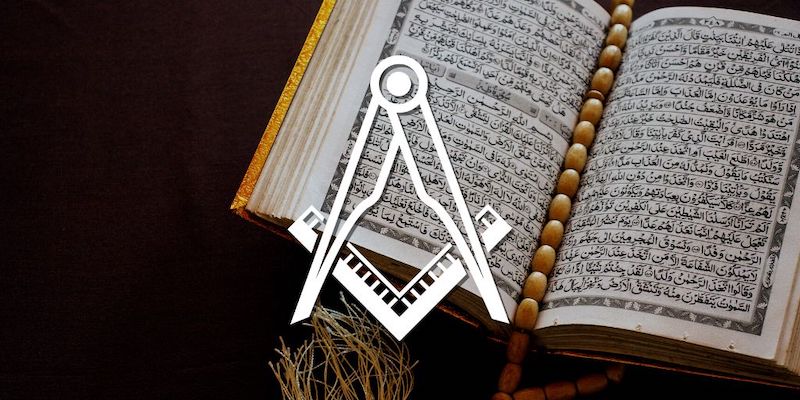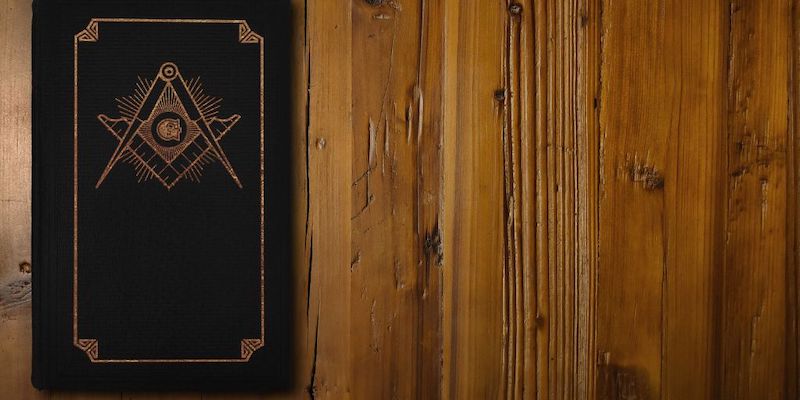If you are a Muslim considering joining Freemasonry, you may be wondering whether it is halal or haram.
Freemasonry is a fraternal society that has been around for centuries and has been the subject of much controversy and speculation.
Some Muslims believe that joining Freemasonry is haram, while others believe that it is permissible as long as it does not conflict with Islamic beliefs and values.
While Freemasonry has no specific religious affiliation, it does have certain philosophical and moral principles that guide its members.
For some Muslims, the question of whether Freemasonry is halal or haram has remained a topic of interest and concern, and while some Islamic scholars may consider it permissible, others may view it as contrary to Islamic beliefs and practices.
In this article, we will explore the question of whether Freemasonry is halal from an Islamic perspective and examine different viewpoints on this matter.

What is Freemasonry?
Freemasonry is a fraternal organization that traces its origins to the local fraternities of stonemasons in the Middle Ages.
Over time, it evolved into a society that is dedicated to promoting moral and personal development, charity, and community service.
Yes, Freemasonry does have elements of a “secret society,” but it would be more fitting to explain it as “a society with secrets”.
This means that some of its rituals, customs, and activities are kept hidden from the public but it does not necessarily conceal its membership or existence.
Its members are men who come from all walks of life, regardless of their social status, race, or religion.
The organization is divided into lodges, which are local groups that are responsible for conducting meetings and ceremonies.
Freemasonry is often associated with symbols and rituals, such as the Square and Compasses, the apron, and the handshake.
These symbols are used to convey moral and ethical values, such as honesty, integrity, and brotherhood.
While Freemasonry is not a religion, it does require its members to believe in a Supreme Being.
However, it does not specify which religion or denomination its members should follow. Instead, it encourages its members to be tolerant and respectful of other people’s beliefs.
The Islamic Perspective on Freemasonry

Views of Islamic Scholars
Islamic scholars have varying opinions on Freemasonry.
Some scholars consider it to be a malicious secret organization that aims to put an end to all religions and good morals and replace them with man-made laws and non-religious systems, and thus; they view it as a threat to Islam and Muslims worldwide.
On the other hand, other scholars believe that Freemasonry is not necessarily anti-Islamic or harmful, but it depends on the individual’s intentions and actions within the organization.
The Islamic Ruling on Freemasonry
The Islamic ruling on Freemasonry is not clear-cut.
Some scholars argue that it is haram (forbidden) for Muslims to join Freemasonry because of its secretive nature and potential harm to Islam.
They also argue that Freemasonry promotes beliefs and practices that are inconsistent with Islamic teachings.
On the other hand, other scholars argue that Freemasonry is not inherently haram and that it is permissible for Muslims to join as long as they do not engage in activities that contradict Islamic teachings.
In general, it is recommended for Muslims to avoid joining organizations that promote beliefs and practices that are contrary to Islam.
Muslims should also be cautious of organizations that have a secretive nature and may have hidden agendas.
It is important for Muslims to seek knowledge and guidance from Islamic scholars before making decisions about joining any organization.
The Compatibility of Freemasonry with Islam

The Principles of Freemasonry
Freemasonry is a fraternal organization that has been around for centuries.
Its principles are based on brotherhood, charity, and truth.
The organization is open to men of all races, religions, and backgrounds.
The principles of Freemasonry are often compared to the principles of Islam, as both emphasize the importance of brotherhood, charity, and truth.
The Compatibility of Freemasonry with Islamic Beliefs
The compatibility of Freemasonry with Islamic beliefs has been a topic of debate for many years.
Some Islamic scholars believe that Freemasonry is incompatible with Islam, while others believe that it is permissible for Muslims to join the organization.
Those who argue that Freemasonry is incompatible with Islam point to the fact that the organization is a secret society and that its rituals and ceremonies are not open to the public.
They also argue that the organization’s principles are not in line with Islamic beliefs, as they do not emphasize the importance of faith in Allah and the teachings of the Quran.
However, those who argue that Freemasonry is compatible with Islam point to the fact that the organization promotes brotherhood and charity, which are also important values in Islam.
They also argue that the organization’s principles are not in conflict with Islamic beliefs, as they do not promote any specific religious beliefs or practices.
Ultimately, the question of whether Freemasonry is halal or haram is a matter of interpretation. It is up to each individual Muslim to decide whether or not they believe that Freemasonry is compatible with their religious beliefs.
Some Controversies Surrounding Freemasonry
Freemasonry has been a controversial subject for many years.
There are many misconceptions and allegations surrounding the organization that have caused many to question its legitimacy.
In this section, we will discuss some of the controversies surrounding Freemasonry.
Misconceptions About Freemasonry
One of the most common misconceptions about Freemasonry is that it is a secret society that engages in illegal activities. This is simply not true.
Freemasonry is a fraternal organization that promotes moral and personal development. The organization is not secret, and its members are open about their affiliation.
Another misconception is that Freemasonry is a religion.
However, this is also false. Freemasonry is not a religion, nor does it promote any particular religious belief.
The organization welcomes members of all faiths and encourages them to practice their own religion.
Finally, it is often claimed that Freemasonry is a political organization that seeks to control governments. This is also not true either.
Freemasonry is an apolitical organization that does not engage in political activities or endorse any particular political ideology.
The Alleged Anti-Islamic Nature of Freemasonry
There have been allegations that Freemasonry is anti-Islamic. However, there is no evidence to support this claim.
Freemasonry welcomes members of all faiths, including Islam. In fact, there are many Muslim Freemasons around the world.
It is important to note that some Islamic scholars have issued fatwas (religious rulings) against Freemasonry, claiming that it is haram (forbidden) for Muslims to join the organization.
However, these fatwas are not universally accepted, and many Muslims do not consider Freemasonry to be haram.
In conclusion, while there are controversies and misconceptions surrounding Freemasonry, it is important to separate fact from fiction.
Freemasonry is a fraternal organization that promotes personal and moral development, welcomes members of all faiths, and does not engage in political activities.
While some may question its legitimacy, it remains a respected institution around the world.